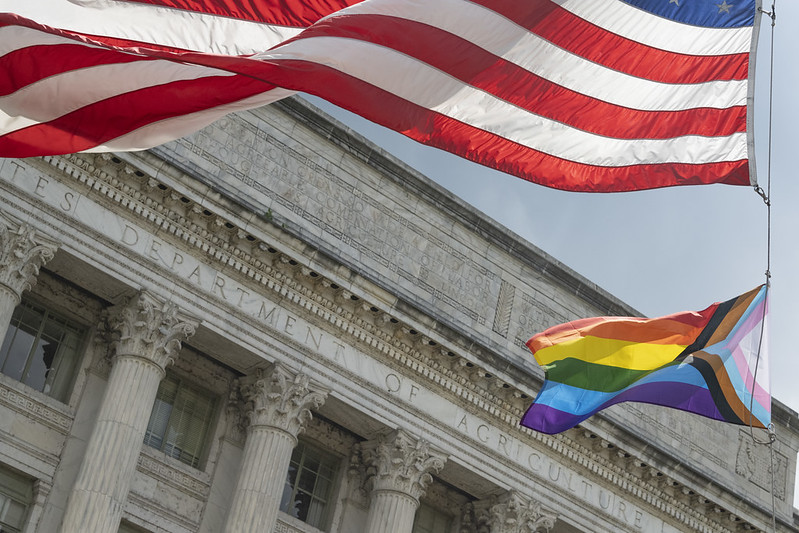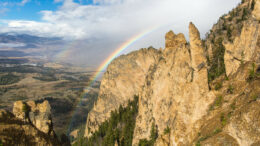Pride Month, held each year in June, is coming up fast. It’s the time of year when environmental groups like to publish Pride stories written by their LGBTQIA and Two-Spirit staff, table at Pride events, and march in Pride parades. This celebrates the happy, “let’s party” part of Pride, and in past years it has felt good to see environmental groups claim us queers as part of themselves.
But 2022 is not an ordinary year. Before any environmental or climate groups celebrate Pride this year, they need to ask themselves if they’re also willing to embrace Pride’s tradition of resistance, most famously expressed in the Stonewall Uprising. Are these groups willing to publicly stand up for queer people — especially transgender and BIPOC queer people — against a nightmarish legislative backlash and increase in hateful bigotry that just keeps building?

In 2022, queer people are under attack even more viciously than usual, with the worst vitriol and violence directed at trans, nonbinary and BIPOC LGBTQIA people. In just the first three months of the year, state legislators proposed at least 238 anti-LGBTQ bills, with education and gender-affirming medical care for trans kids especially targeted. Attempts to ban books with LGBTQ subject matter from school and public libraries have increased dramatically in a trend that started last year. Bigoted language from the past that slanders all LGBTQ people as sexual predators and child molesters has made a big return. Hate crimes are up.
These aggressively backsliding trends aren’t expected to lessen any time soon. Just as Republican operatives and politicians have attacked environmental regulations, climate science, reproductive rights and wildlife protections, they’ve now declared open season on LGBTQIA — especially trans — children and adults as part of their 2022 midterm election strategy.
But anti-transgender views aren’t limited to state legislatures. The environmental and climate justice movements can also be transphobic, as shown in recent news coverage about well-established organizations.
Before you reflexively think, “Oh the environmental and climate groups I’m part of would never be associated with transphobia,” take a hard look at who your groups have aligned with through sign-on letters and other forms of support. For example, earlier this year environmental and social justice groups got an unpleasant surprise after they supported a mining protest camp without looking closely at the anti-transgender environmental group behind it.
Transphobia inside the environmental and climate justice movements won’t be rooted out unless movement leaders make doing it a priority. This is a matter of justice, since LGBTQIA and Two-Spirit people — especially those who are BIPOC — are disproportionately impacted by climate change and other environmental harms due to long-entrenched social stigma, lack of safe housing, underemployment and higher poverty rates.
Rejecting transphobia is also in the self-interest of environmental and climate justice organizations that want to attract younger participants, which most do. Far more people younger than 25 identify as LGBTQ than in past generations. Green groups that wish to remain relevant will need to demonstrate that queer people of all types are not only welcome but valued.
So if I could say just one thing to environment and climate groups about whether to participate in Pride this year, it would be this: Please come to Pride and join in the celebration, but also make sure you stick around to help once Pride Month is over. LGBTQIA and Two-Spirit people need your help — and you need our talent, creativity and energy.
The opinions expressed above are those of the author and do not necessarily reflect those of The Revelator, the Center for Biological Diversity or their employees.
![]()
Previously in The Revelator:
Finding Your Way as an Environmentalist in Rural America — Even if You’re LGBT


